The Cordex-Africa initiative has been developed to analyze downscaled regional climate data over the African domain of CORDEX, train young climate scientists in climate data analysis techniques and scientific writing as well as to engage users of climate information in both sector specific and region/space-based applications.
One component of the campaign has run four training and analysis workshops during 2011 and 2012 to analyze CORDEX-Africa downscaled data. During the first workshop regional analysis teams were formed (east, west and southern African regions). Each regional group is composed of senior members and early career scientists and students, who have been mentored by senior members during the workshop activities. Major research questions for each region were elucidated and initial analysis of the data begun. The second workshop refined the regional analysis objectives and analysis of the CORDEX model data was continued. During the third workshop, climate data analysis continued and additionally each analysis group was linked with vulnerability-impact-adaptation (VIA) scientists to understand and address the types of climate related questions of these communities.
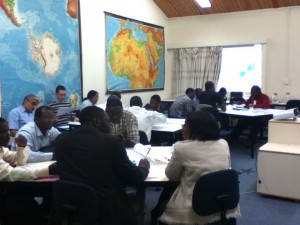
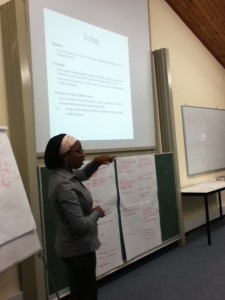
The VIA scientists represented ecological, hydrological and agricultural sectors and input from this community helped refine some of the research questions to be addressed in later CORDEX activities. The fourth workshop was a “writeshop” and focused on writing up the climate analysis work of the previous workshops – four journal papers were submitted in time to qualify for review in the IPCC AR5 and eleven papers in total have been published from this process. Most of the lead authors were African early career scientists or students.
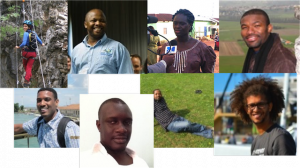
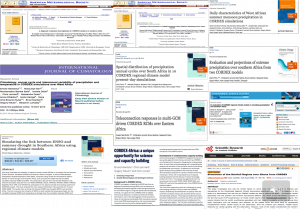
A second climate information user-engagement component was continued through two further workshops in which members from the CORDEX regional teams engaged (a) with health sector practitioners in West Africa to understand their needs with respect to climate information[1] and (b) representatives from five African cities to understand city-scale climate vulnerabilities and information needs[2].
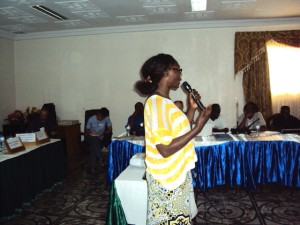
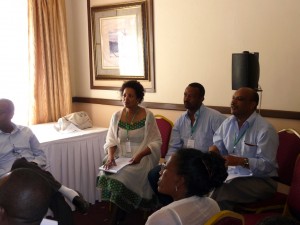
These workshops were funded by the largely by START, with additional funding provided by the WCRP, CSAG, SMHI and CDKN and we gratefully acknowledge their contribution to the work so far.
In summary, the achievements of the CORDEX-Africa initiative so far include the establishment of regional teams to assess current and projected climate variability, projections of climate change and the impacts of climate change at the regional scale. Nine journal articles have been published and there has been successful engagement with many communities that require climate information. The campaign was to have continued with an analysis of downscaled CMIP5 future projection data that become available through CORDEX during 2013/2014, however, it stalled through lack of funding despite the extremely beneficial outcomes.